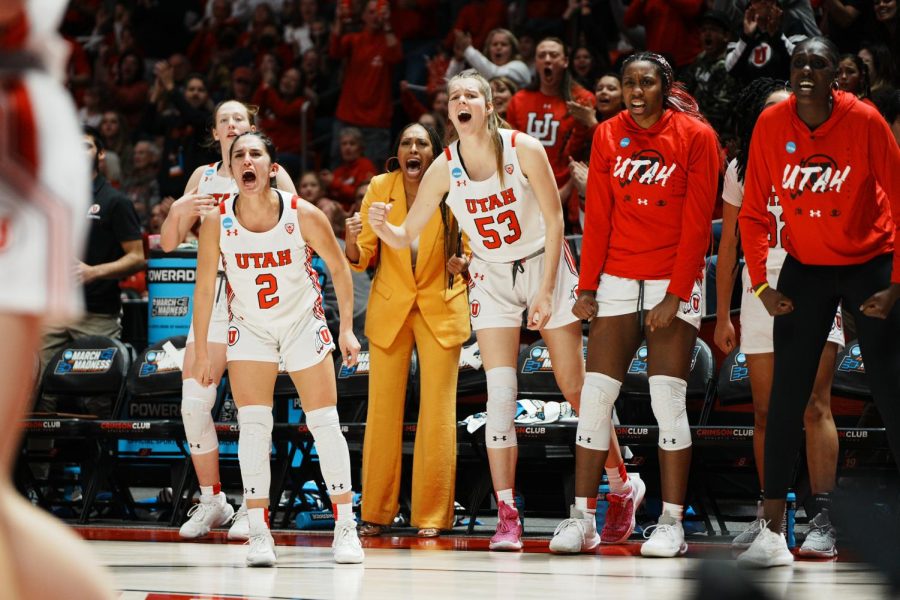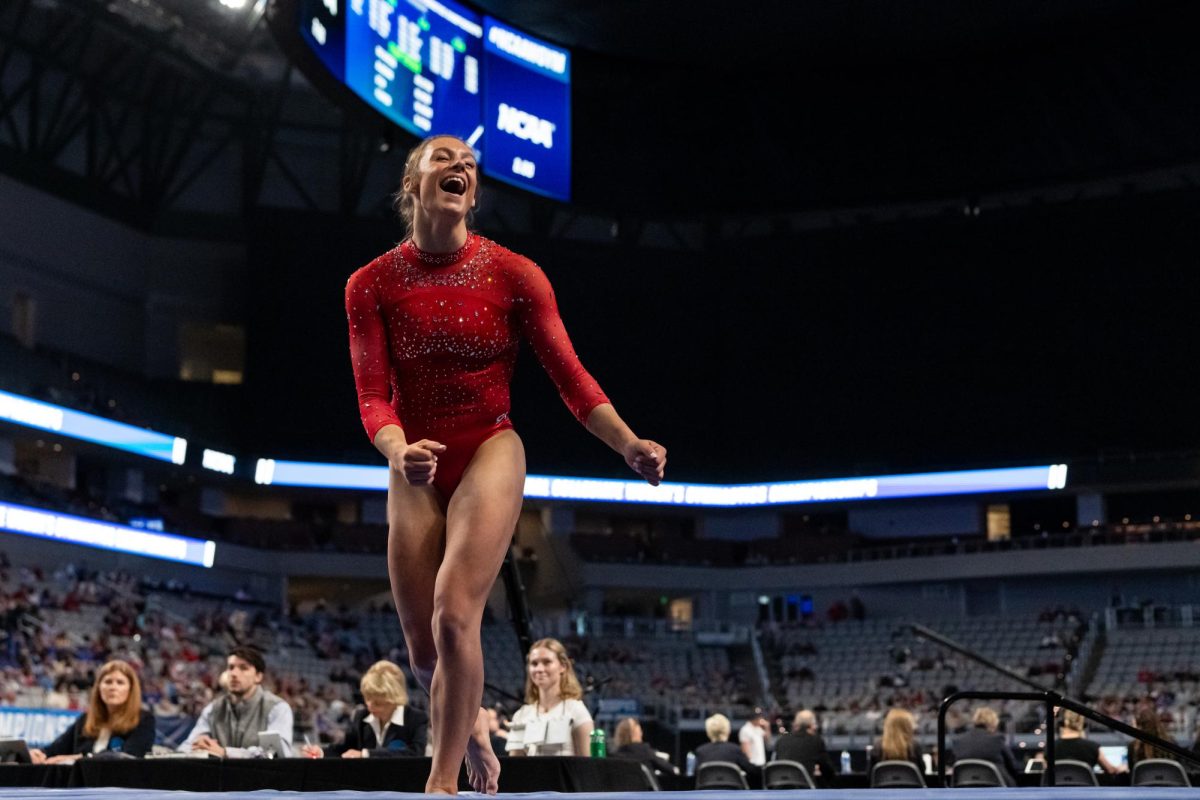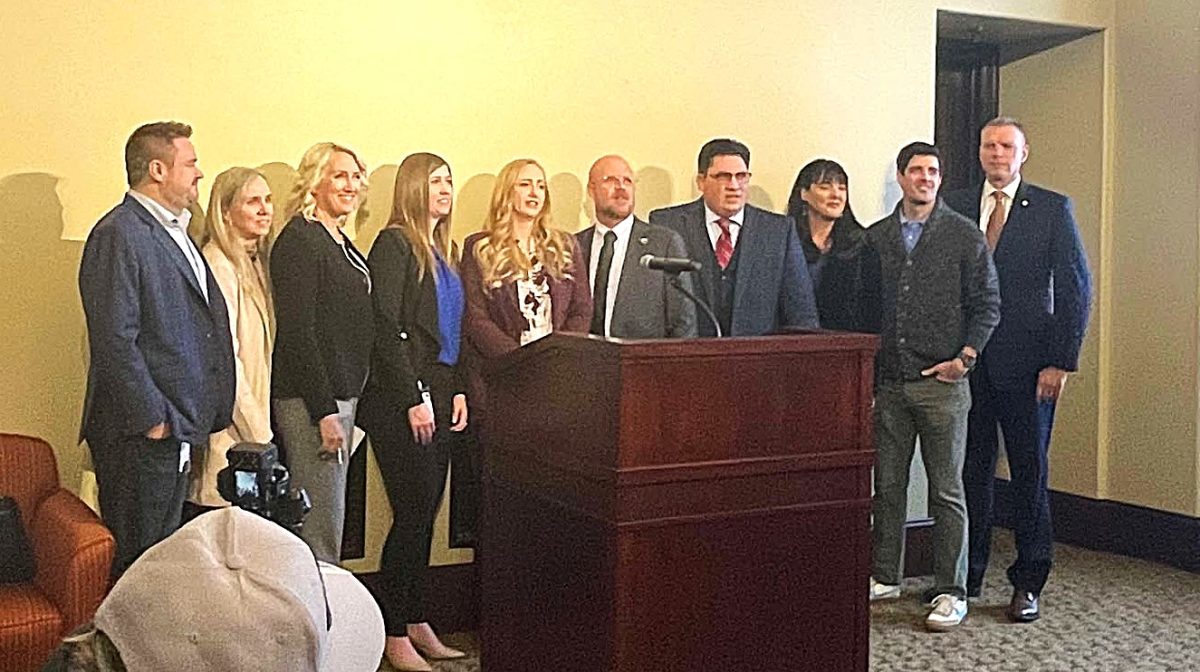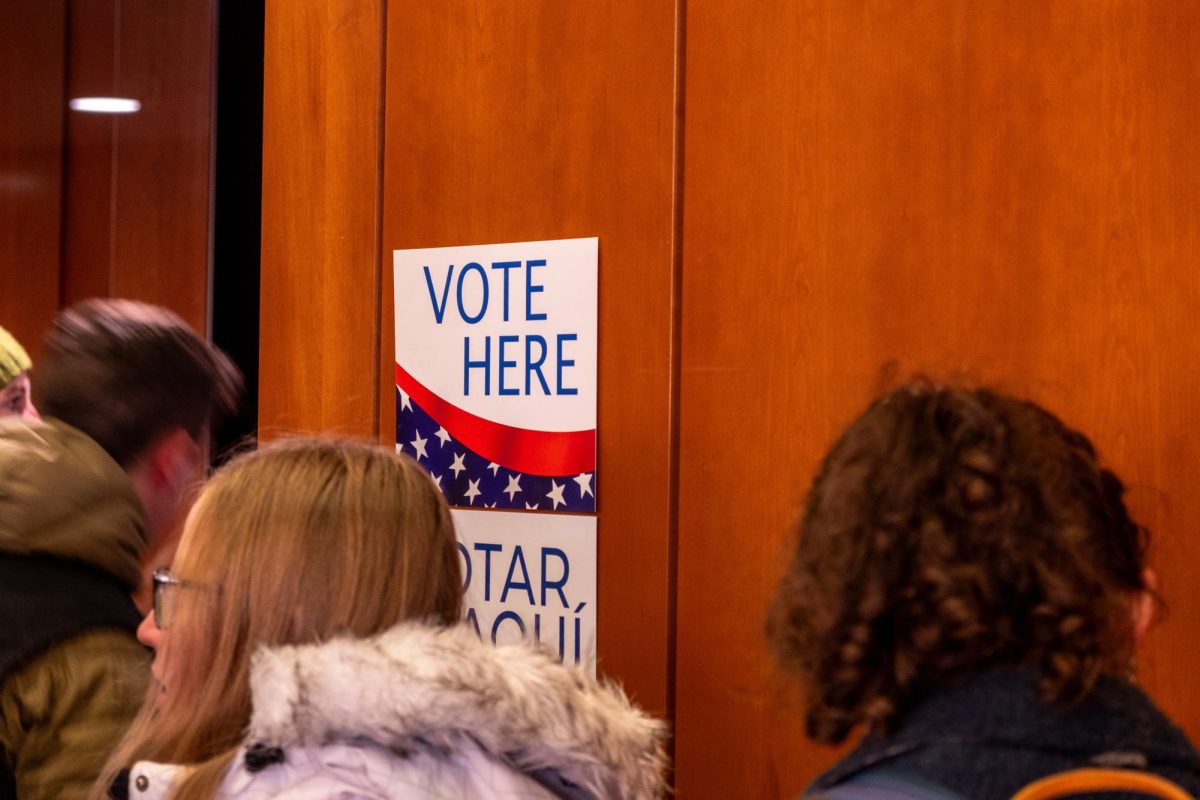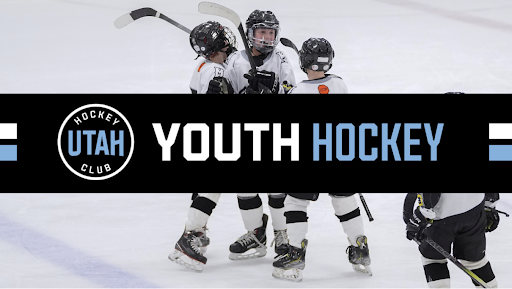Lezaic: Our Women’s Basketball Team Deserves More Attention
The University of Utah women’s basketball team celebrates during the March Madness game versus the Princeton Tigers at the Jon M. Huntsman Center in Salt Lake City on March 19, 2023. (Photo by Xiangyao “Axe” Tang | The Daily Utah Chronicle)
April 5, 2023
The University of Utah’s women’s basketball team has consistently proven itself a powerful force on the court, especially this season. Yet the team continues to be undervalued by sports fans and news media compared to their male counterparts.
The lack of well-deserved attention directly stems from misogyny, bioessentialism and homophobia in the sports world. Exceptional women’s teams, especially our women’s basketball team, deserve more than the fraction of attention that mediocre men’s teams freely receive.
The Impact of Misogyny on Attendance
Misogyny has historically played a large role in the dismissal of women’s sports, leading women’s teams to be seen as inferior to men’s. The U has one of the best college women’s basketball teams in the nation, apparent in the way they fought their way through March Madness. The PAC-12 regular season champs won 27 games this season and even made the March Madness Sweet 16 before they lost to LSU, the March Madness Champions, by just three points.
Despite their incredible performance, they are still in the shadow of the men’s team, who had a 17-14 record compared to the women’s 27-5. While we witnessed the women’s basketball team spike by 50% in attendance this season, with an average of about 3,000 fans per game, the men’s basketball team still averaged twice that, despite this season being their lowest in attendance since the 1980s.
AJ Spicknall, a member of the U’s pep band, has regularly attended both the women’s and men’s basketball games this season. According to him, there’s a noticeable difference in attendance.
“It’s interesting to me because, for example, last year our women’s outperformed our men’s greatly,” Spicknall said. “It was just weird to me because we’ve had a Top 10 ranked [women’s] team for so long, but yet our men’s just had a larger audience.”
The Harm of Biological Determinism
Bioessentialism is the notion that biological characteristics inherently dictate different aspects of a person, including their physical ability. This form of biological determinism is a pervasive and extremely harmful view within the world of sports, serving to enforce harmful stereotypes, especially those concerning gender and race. This ideology has perpetuated transphobia, racism, misogyny and all other forms of exclusion in sports.
Biological determinism completely ignores social factors that may or may not contribute to a difference in skill. This includes the ways that girls are socialized into avoiding sports as they grow up, a lack of support to sustain their interest in sports, a gendered difference in diets and so much more.
Although viewership is increasing gradually, it’s clear that women still receive far less media coverage and attendance compared to men. This disparity is largely owed to bioessentialist perceptions of sports and athletic ability. When women’s teams do receive attention, they’re framed as slower, less skilled and less enjoyable to watch. These insulting bioessentialist claims erase the dedication of athletes who have trained for years to achieve success in their sport.
Hostility Towards Queerness
Homophobia is the silent killer of women’s sports. Although sports fans may not say it outright, their cisheteronormative ideals of how women should exist play a large role in viewership.
It’s no secret that sports are gendered in our society. And it’s also no secret that our society degrades queer women and assigns value to women who conform to cisheteronormative ideals. So it’s generally considered alright if a woman participates in a more feminine sport like figure skating, but if she plays a so-called “masculine” sport, her sexuality is questioned.
Basketball is perceived as one such masculine sport. While sports like figure skating and gymnastics favor elegance and slight frames, the physical ideal of basketball players is height, strength and an aggressive physical defense. These characteristics are praised in men, but aversive when seen in women. This subversion of gender roles within sports has always been met with suspicion. As writer Erin Blakemore concisely puts it, “Sporty women have long been portrayed as emasculating, mannish lesbians.”
While sports have historically been important community spaces for lesbians, the idea that any woman who engages in sports is a lesbian is based on stereotypes. It has also been used to police women and demand proof of heterosexuality, as in the case of the WNBA releasing a list of players’ husbands’ names in the year 2000.
It’s no wonder that sports fans, the majority of whom value cisheteronormativity, would look down on women’s basketball or that sports media companies would opt out of covering games. One study even found that “less than 2% of sports media covers women’s sports that are deemed masculine.”
Additionally, much of the coverage they do receive follows the “sex sells” rule. And, of course, this is marketed to heterosexual men. But when it comes to a sport that either disrupts male entitlement to female sex appeal or challenges the demure and delicate idea of what’s sexy to begin with, the result is outrage and a lack of viewership.
Rather than trying to appeal to sports fans by portraying women’s teams as merely on par with men’s, we should be voicing the truth — that in many cases women are even better, given the sheer number of obstacles these athletes face to get to where they are.
By recognizing and celebrating the achievements of our women’s basketball team, we can begin to challenge the disgusting views that hold women’s sports back. It is time for us to give women’s basketball the attention and recognition it deserves.


